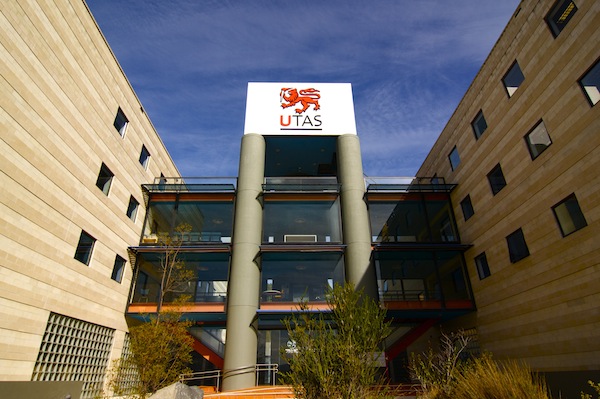Coal’s future looks gloomy, both ethically and financially. Now’s the time for the University of Tasmania to get out. [13 October 2015 | Peter Boyer]
Volkswagen’s cheating scandal, a marketing and financial calamity for the giant car-maker, could trigger a global automotive transformation.

The University of Tasmania knows better than most how fossil fuels are changing our climate. PHOTO UTAS
Emissions from diesel fuel are at the centre of the scandal, but petrol as well as diesel vehicles will come out of it with a tarnished reputation, according to financial commentators Alan Kohler and Robert Gottliebsen, of Business Spectator.
They speculate that before 2030 a battery-powered electric car revolution will see all manner of traditional auto service industries go to the wall as oil prices sink to new depths. The gas industry may fare better, but history would suggest that its fortunes will remain firmly tied to oil.
If these are troubling times for oil and gas, things are worse for coal. With China and India each preferring local over imported coal, big expansion plans on NSW and Queensland coalfields are being shelved as investors find safer places for their cash.
A study by Adam Lucas of Wollongong University has found that government subsidies and externalised costs largely negate coal’s economic benefit, while the fact that global coal production will peak a decade ahead of Australia’s looks like drying up our export trade completely after 2030.
Australian coal-fired electricity is keeping its end up for now, but Malcolm Turnbull’s ascension has already seen some increased investor interest in renewables. It’s hard not to see them as the main driver of long-term energy market growth, leaving coal well and truly out on a limb.
An unstable financial system won’t help matters. Two weeks ago, Bank of England governor Mark Carney told a Lloyds Insurance dinner in London how a changing climate will destabilise financial systems.
Climate change, he said, was “the tragedy of the horizon”. Problems left unfixed today because they were too far ahead, over the horizon, created huge potential risk. “Once climate change becomes a defining issue for financial stability, it may already be too late.”
One financial risk of moving to a lower-carbon economy would be physical impacts of climate change on assets and trade, said Carney. A second factor would be liability: in years to come those responsible for today’s carbon extraction and emissions may be sued for climate-related loss. A third risk was asset revaluation triggered by changing costs and opportunities, which could happen too suddenly for financial systems to cope.
Science calculates that for warming to be limited to 2C no more than a third of proven reserves of coal, oil and gas can be burned. As Carney said, most of today’s reserves will be stranded “without expensive carbon capture technology, which itself alters fossil fuel economics”.
Financial fortunes can change very quickly. Within a month Volkswagen’s once-solid share price has dropped 40 per cent, wiping $33 billion from the company’s value. That’s without huge recall costs (91,000 vehicles in Australia alone) and expected large fines in multiple jurisdictions.
Fossil fuel stocks, involving thousands of companies, won’t shift so quickly, but there are signs of investor unease. Of all institutions universities know most about the impact on climate of emissions from fossil fuels, and a growing number of them are selling out of these stocks.
We should expect real leadership from the University of Tasmania, which has an outstanding track record in the science of climate change and the study of its implications for ecosystems, coastal lands and the law. It punches well above its weight in global forums.
The university did reduce its fossil-fuel holdings over the past year in response to earlier pressure, but still holds coal, oil and gas shares at a current total value around $20 million, which would amount to about 7 per cent of its total investment portfolio.
Now that both the negative physical impact of fossil fuels and their poor financial prospects are so well understood, it behoves the University of Tasmania to act decisively to end all its commitments to these industries. A month out from the Paris climate summit, there couldn’t be a better time.
Tomorrow, public rallies on campuses in Hobart (1 pm, Morris Miller Library, Sandy Bay) and Burnie will be calling for a complete sell-off of the university’s fossil fuel stocks.
